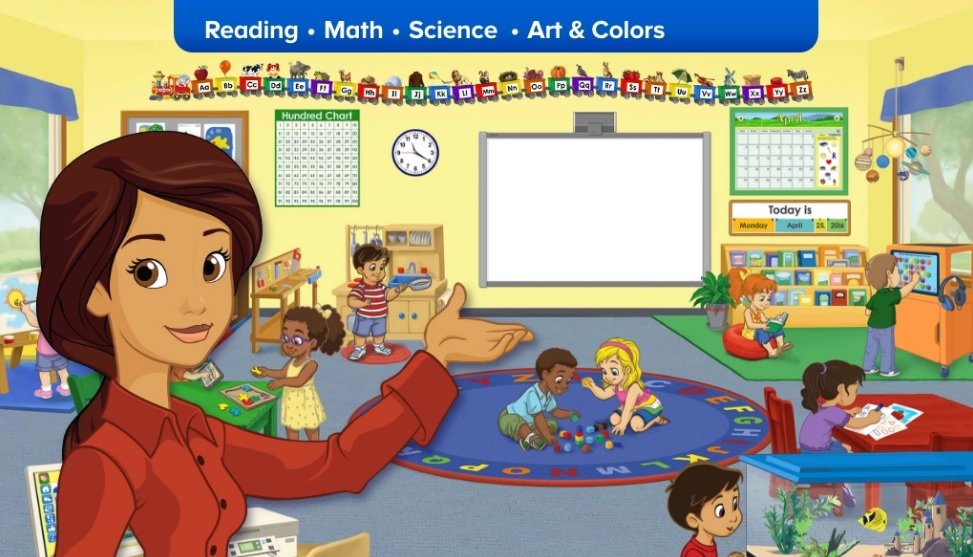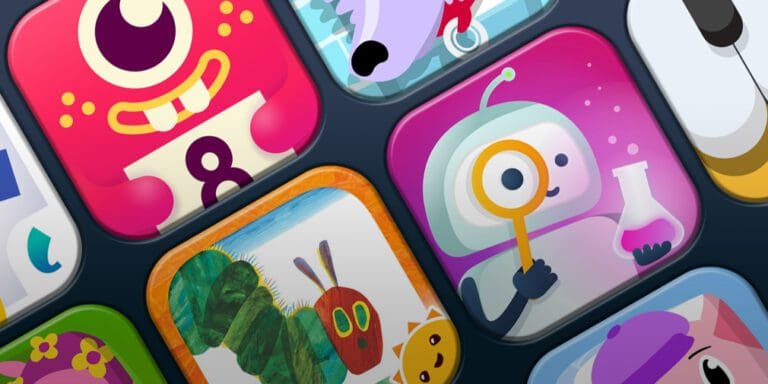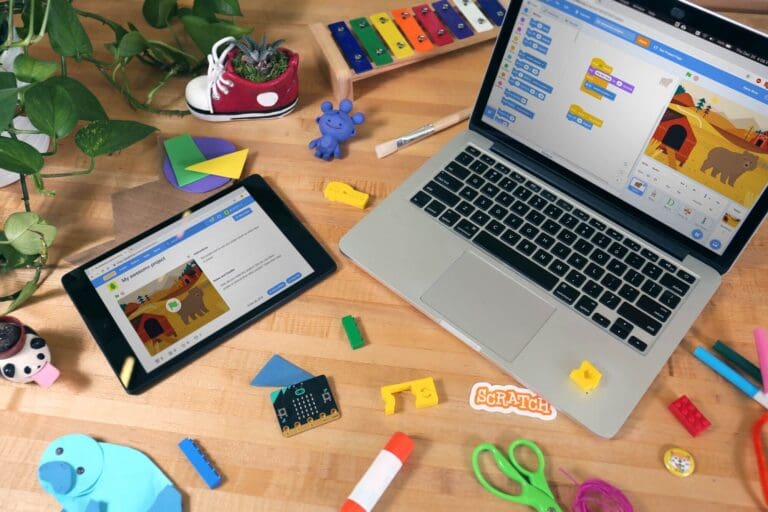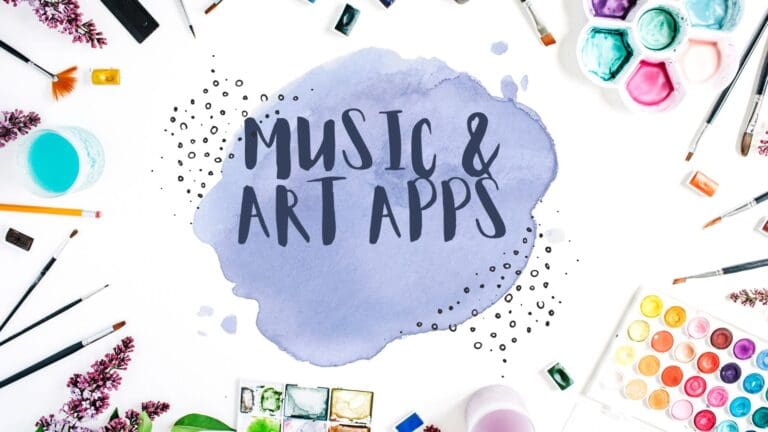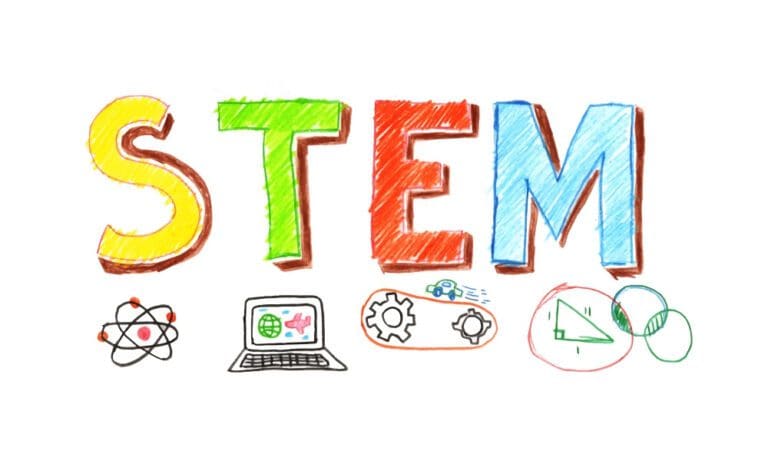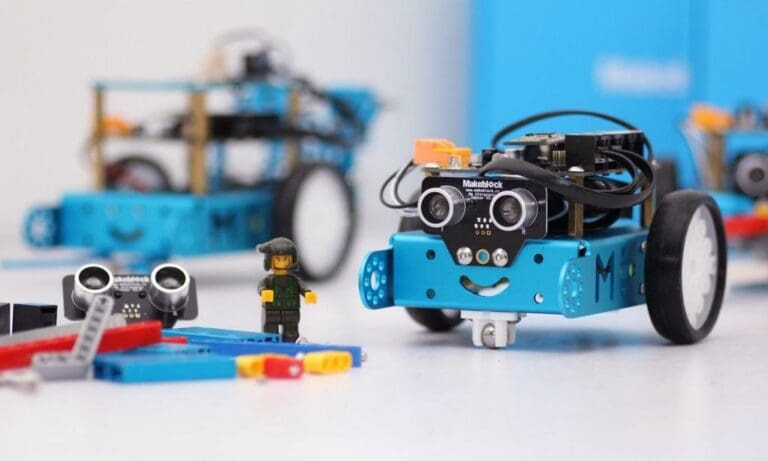12 Benefits of Learning Apps for Your Child
As parents, we always look for ways to support our child’s learning and development. With the advancement of technology, so many mobile applications and web services have become increasingly popular ways for parents to provide their children with engaging and educational experiences. These resources can offer a convenient, affordable, and effective education system to support young children’s learning and development.
Mobile learning has become increasingly popular recently, and it’s not hard to see why. With more and more kids having access to mobile devices, e-learning apps have the potential to revolutionize the way children learn and grow.
What Are Educational Apps?
Educational apps are software applications designed to teach or enhance a user’s knowledge of a particular subject or skill. These apps are commonly used in educational settings to supplement traditional teaching methods or provide alternative learning methods. They can range from interactive games and quizzes to more structured lessons and tutorials and are often created for specific age groups or academic levels. Educational apps can be accessed on various devices, including smartphones, tablets, and computers, making them easily accessible for all ages and learning styles.
How Do Apps Affect The Way Of People Learn?
Apps have revolutionized how people learn by providing easy educational content access and a more personalized learning experience. With the flexibility to learn anytime and anywhere, apps have made education more accessible and convenient.
Apps can adapt to the user’s skill level and learning pace, making understanding and retaining information easier. They also provide interactive and engaging activities stimulating the user’s interest and learning motivation.
Furthermore, apps can track progress and provide immediate feedback, allowing learners to monitor their performance and identify areas of improvement.
What Is The Importance Of Utilizing Apps For Teaching And Learning?
Utilizing apps for teaching and learning is important because it can enhance the learning experience, improve engagement and motivation, and provide a more personalized approach to education.
Apps can offer various interactive and multimedia content, such as videos, animations, and games, to help learners understand complex concepts and retain information more effectively.
Another advantage of using apps is that they are accessible anytime and anywhere, which means learners can study at their own pace and convenience. With apps, learners can break down learning into smaller and more manageable parts, making it easier to focus and avoid cognitive overload.
Apps can also facilitate collaborative learning, as users can interact and share resources with their peers in real-time. what is educational apps
Can Apps Help Children Learn?
Are educational apps helpful in children’s education? And what can I do to learn more about and practice the use of educational apps? These are the questions I have when I think about how to make the learning process for my children more effective, productive, and interesting.
Apps can be helpful tools for children to learn. Educational apps designed for children provide interactive and engaging activities that can stimulate their curiosity and help them learn new concepts and skills.
Many educational apps incorporate game-like elements that make learning fun and motivating for children. Moreover, apps can adapt to the child’s learning pace and provide personalized feedback and assessments, which can help identify areas where they need more support.
And when I come to the question of how I can learn more about and practice the use of educational apps, I see several options:
- Research online or through educational resources to learn more about the various educational apps available and which are best suited for my needs.
- Attend Workshops or Webinars hosted by educational institutions, tech companies, or other organizations that provide training and guidance on the effective use of educational apps.
- Explore app stores on various devices and try out different educational apps. Read user reviews and ratings to identify popular and highly rated apps.
- Experiment with different educational apps to determine which ones work best for my children and their learning style. Understand what features they like and what they find challenging.
- Collaborate with peers and educators to effectively share tips and tricks on using educational apps.
Benefits Of Learning Apps For Kids
Convenience
Mobile applications are available 24/7, allowing kids to learn whenever and wherever they want. This convenience benefits children living in rural areas, where access to traditional learning resources may be limited.
Interactive Learning
App-based learning is often designed to be interactive, making learning a more engaging and fun experience for kids. Games, quizzes, and videos can help keep children interested and motivated.
Personalization
Mobile apps can be tailored to each child’s individual needs and interests. It means that children can learn at their own pace and focus on topics that interest them most.
Flexibility
Educational applications can be used as a supplement to traditional classroom learning or as a standalone learning resource. This flexibility allows kids to learn in a way that works best for them.
Cost-effective
Mobile apps are often more cost-effective than traditional learning resources, such as textbooks and workbooks. It makes them accessible to a wider range of children, regardless of their financial situation.
Accessibility
Children with disabilities or special needs can access learning services. Many e-learning apps are designed to be inclusive and can be adapted to suit the needs of each child.
Track Progress
Learning apps often come with built-in progress-tracking features. It allows parents and teachers to monitor a child’s progress and identify areas where they may need additional support.
Instant Feedback
Many apps can provide instant feedback to children, letting them know whether they are on the right track or need to revise their approach. It helps to build a child’s confidence and motivation.
Boosts Creativity
Apps are designed to be creative and encourage children to think outside the box. It can help to boost a child’s creativity and imagination.
Enhances Critical Thinking
Mobile learning apps often require children to problem-solve and think critically to complete tasks. It helps to develop a child’s critical thinking skills and prepares them for future academic and career pursuits.
Multi-lingual Learning
Many mobile apps are available in multiple languages, making them accessible to children from diverse backgrounds. It promotes inclusivity and diversity in education.
Fun Learning
Finally, mobile learning apps make learning fun! By using a range of interactive and engaging activities, kids can enjoy the learning process and develop a love of learning that will stay with them throughout their lives.
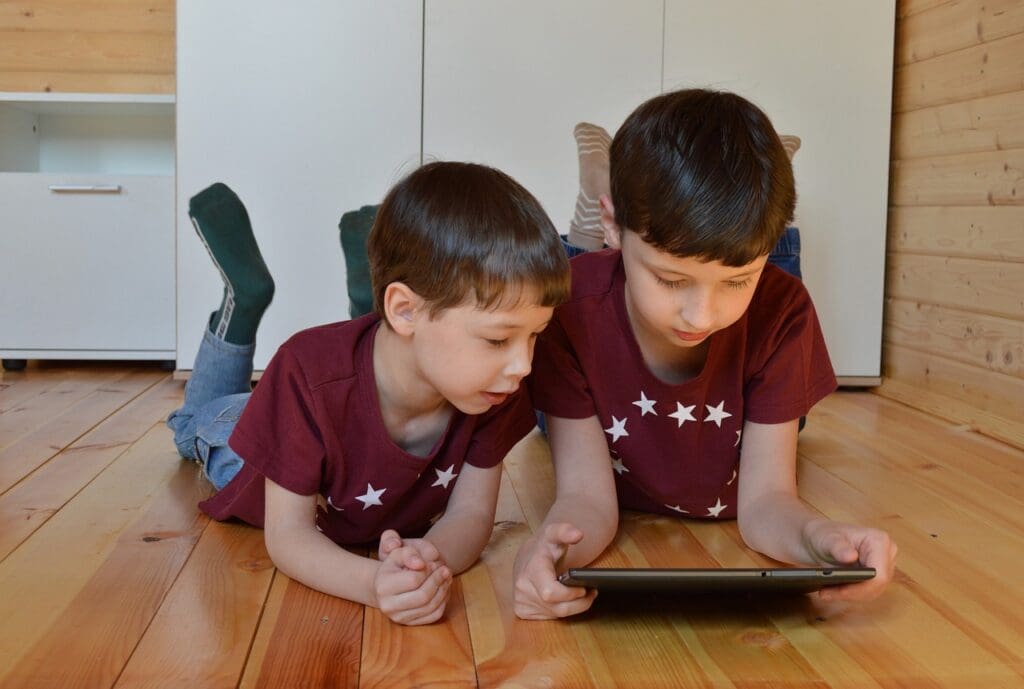
Advantages And Disadvantages Of Educational Apps
Apps have revolutionized the way we learn and access information. With the rise of technology, learning apps have become increasingly popular among students, educators, and parents. Here are some advantages of educational apps:
Advantages Of Educational Apps
Interactive learning process
Learning apps offer interactive learning experiences through videos, animations, games, and quizzes. It can make learning more engaging and fun for students, resulting in better retention of information.
Multi-sensory learning
Can incorporate audio, video, and visual aids to provide a multi-sensory learning experience. It can be particularly beneficial for students who learn best through different senses.
24/7 learning
Learning apps can be accessed 24/7, allowing students to learn at any time of the day or night. This flexibility can benefit students with other commitments, such as work or family responsibilities.
Improved engagement
Educational apps can improve student engagement, motivation, and interest in learning. It can lead to better academic performance and a love for learning that lasts a lifetime.
Access to up-to-date information
Educational apps can provide access to the most up-to-date information and research in a particular field. It can be particularly beneficial for students studying in fields that are constantly evolving, such as science and technology.
Disadvantages Of Using Educational Apps
Overuse
Overusing educational apps can lead to a dependence on technology, which may limit a child’s ability to learn through other methods or develop critical social and emotional skills.
Limited interaction
Some educational apps may provide a different level of interaction with a teacher or peers than in traditional classroom settings. It may impact a child’s ability to learn social and communication skills.
Quality and accuracy
Not all educational apps are created equally; some may contain inaccurate or outdated information. Researching and evaluating an app’s quality before using it for learning is essential.
Distractions
With the abundance of multimedia content and other features, some educational apps can be distracting, making it difficult for children to focus on the core learning objectives.
Cost
While some educational apps are free or low-cost, others can be expensive, and the price can add up if multiple apps are required for learning.
What Is The Impact Of Self-Learning On Young Children
Self-learning can significantly impact very young children, providing them with a foundation for lifelong learning and development.
Promotes independence
Self-learning helps young children develop a sense of independence and self-confidence. Children can develop problem-solving skills and self-reliance by allowing them to explore and learn independently.
Fosters curiosity
Self-learning encourages children to be curious and ask questions. This curiosity helps them to develop a love of learning that can last throughout their lives.
Enhances creativity
Self-learning allows children to express their creativity and imagination. By exploring and experimenting, they can develop new ideas and ways of thinking.
Develops critical thinking skills
Self-learning helps young children develop critical thinking skills essential for academic success. Children can develop their cognitive abilities by asking questions, solving problems, and making connections between ideas.
Improves social skills
Self-learning can improve young children’s social skills as they learn to share and collaborate. Children can develop important social skills such as communication, cooperation, and empathy by working together on projects and tasks.
Encourages a love of learning
Self-learning can help children develop a love of learning that will stay with them throughout their lives. Children can develop a lifelong love of learning by providing them with the tools and resources they need to explore their interests and passions.
Supports academic success
Self-learning can positively impact academic success as children develop essential skills and knowledge to help them in school. By self-learning, children can develop the foundational skills they need to excel academically.
Overall, self-learning can significantly impact young children, providing them with important skills and knowledge that will serve them well throughout their lives. It can help to promote independence, curiosity, creativity, critical thinking, social skills, and a love of learning, all of which are essential for success in the modern world.
How To Find a Learning App For Your Kid: Choosing Tips
Age-Appropriateness
Choosing learning apps and web services appropriate for your child’s age and abilities is important. Look for resources specifically designed for kids in the 3-5 years age range, as they will be most effective for this age group.
Content Quality
Look for well-designed apps and web services that offer high-quality content. Ensure the content is appropriate, relevant, and educational, focusing on learning and skill-building.
User Experience
Consider the overall user experience of the app or web service, including how easy it is to navigate, how engaging the content is, and how well it is designed to support learning and development.
Safety
Ensure that the app or web service you choose is safe for your child, with appropriate parental controls and privacy features to protect your child’s personal information and keep them safe online.
Cost
Consider the cost of the learning app or web service and any additional expenses, such as subscriptions or in-app purchases. Ensure the cost is reasonable and in line with the value of the resource.
Reviews
Read reviews and feedback from other parents to understand what to expect from the learning app or web service. Pay attention to any common complaints or areas of concern, and consider whether they would be relevant to your family.
Flexibility
Consider how flexible the educational app or web service is in adapting to your child’s changing needs and abilities over time. Choose a resource that can grow with your child and support their learning and development as they grow and develop.
By following these tips, you can help ensure that you choose the mobile learning strategy and web services for your child and support their learning and development in the most effective way possible.
How To Support Your Child’s Learning with Educational Apps
Encourage Active Participation
Encourage your child to participate in mobile learning rather than passively consume content actively. Look for resources that include interactive elements, such as games, puzzles, and other activities, and encourage your child to engage with them.
Set Goals
Set goals for your child’s learning, and help them reach those goals. For example, you might aim to learn the alphabet or practice counting and basic math skills. Use the learning progress tracking and reporting features of educational apps and web services to monitor your child’s progress and identify areas where they need more support.
Foster a Love of Learning
Use educational applications to foster a love of learning in your child. Look for engaging and enjoyable resources, and encourage your child to explore and discover new things.
Balance Screen Time
Balance screen time with other educational activities, such as reading books, playing with educational toys, and spending time outdoors. Encourage your child to take breaks from screens and mobile devices and engage in physical activity and other hands-on learning experiences, including traditional learning methods.
Get Involved
Get involved in your child’s learning by playing educational games and activities and discussing their learning. It can help to reinforce their learning and provide a fun, interactive way to support children’s progress.
Limit Distractions
Limit distractions, such as turning off notifications, putting away devices, and creating a quiet, focused environment.

Using educational apps and web services to supplement other educational activities and experiences can help support your child’s learning and development meaningfully and effectively.
Conclusion
We can use educational apps and web services to help our kids learn and grow. With the right tools, we can give our kids fun educational activities to help them build important skills and a love of learning. But it’s important to choose educational apps and websites carefully, considering the right age range, content quality, user experience, safety, cost, and reviews. Using these rules, educational apps, and web services to supplement other learning activities and experiences, we can help our kids reach their full potential and build a foundation for future success.
Overall, educational apps and web services can provide a convenient and effective way for us to support our child’s learning and development while being a cost-effective alternative to traditional classroom teaching.


